why therapy?
Being human is a lot. This is a calm, honest space to pay attention, mind, body, story, at a human pace. Real conversation. No fixing you. Just company, context, and room to meet yourself more fully.
it’s a journey.
The cost of carrying it all
1.
2.
The point of therapy
the pay off you can’t measure
3.
But most importantly, what’s your point for therapy.
The Cost of Carrying It All
We all carry more than we show. On the outside it can look like coping, capable, even thriving but underneath, the weight builds. Sometimes it’s the pressure to hold it together, the worry that never loosens, the feeling of being off-track you can’t quite name, or the old patterns that keep pulling you back. Sometimes you even know why you are the way you are, but can’t seem to feel different, no matter what you try. The cost isn’t always dramatic; often it’s the quiet drain that seeps into your body, your thoughts, your relationships, even your sense of who you are.
-
Sometimes it’s restless energy, sometimes it’s a deadened heaviness. It can be sharp pain, chronic fatigue, or just the sense that your body’s braced even when nothing’s happening. For some, settling feels impossible; for others, settling feels like being trapped. However it shows, the body often carries what words don’t.
-
It can look like a constant buzz you can’t switch off, replaying old moments, fast-forwarding into the future, unable to land in now. Or it can feel like blankness, the mind checked out. Worry, pressure, the inner critic that never clocks off, all of it can leave you stuck in outdated patterns that no longer fit. Full or empty, both are heavy to hold.
-
The cost isn’t just private, it leaks into how you show up with others, how you manage work, how you meet yourself. Sometimes you feel muted, other times you’re “on” all the time. Either way, carrying it all can make it hard to feel at home in your own skin. There can be the weight of no longer feeling like yourself, or the ache of not quite landing on who that self is.
The Point of Therapy
The point of therapy is to make space for what usually gets pushed aside, the patterns, the pressures, the stories you tell yourself without even realising. In the room we slow it down, pay attention, and stay with what shows up. That’s where shifts begin.
-
Therapy isn’t about turning you into someone new. It’s about slowing down enough to notice the patterns, protections, and stories that shaped you or the pressure you carry, the inner critic that never clocks off. Together we find steadier ways of being that sit with who you really are.
-
Most of the shift happens in real time, between two people in conversation. Sometimes that feels like relief, sometimes it feels uncomfortable, both are part of the process. We pay attention to what lands in your words, in your body, and in the space between us. Old, outdated patterns often show up here, the worry, the tug of “not enough,” or the weight of no longer feeling yourself. This is where they start to loosen.
-
It’s not about quick fixes or chasing perfection. The shifts often begin quietly, less pressure in your chest, a pause where the inner critic used to jump in, moments of ease you didn’t expect. Over time, these small changes start to weave into everyday life.
The Payoff You Can’t Measure
Some of the biggest changes in therapy don’t look dramatic from the outside. They arrive quietly, in how your breath finds its rhythm, how your mind slows its spin, how your body begins to feel less like armour and more like you’ve found your home. They’re not trophies you can show off, but you feel them all the same.
-
It isn’t fireworks; it’s noticing the volume turn down inside. Your body feels less on guard, less braced for impact. Thoughts stop racing long enough for you to catch your breath. These shifts can be so small they’re easy to miss, until you realise they’re stacking up, making ordinary days feel lighter to carry.
-
There’s that indescribable sense of being just off-track, like you’re doing all the “right” things but something isn’t landing. Therapy helps loosen that knot. Old patterns don’t vanish overnight, but they lose some of their pull. You find yourself pausing before reacting, making choices that sit better in your gut. Conversations that once felt loaded become more workable. It’s less about becoming someone new and more about finding steadier ways of being yourself in the middle of it all.
-
Life doesn’t stop being messy but you don’t topple as easily. You notice you can wobble without unravelling. There’s a deeper centre you can return to, even when things don’t go to plan. That steadiness isn’t loud or showy; it’s the kind that lets you move through the world with more ease, more grace, more of you intact.
Faqs.
-
No. Therapy isn’t just for crisis points. Many people come when life looks fine on the outside but feels heavy, flat, or just slightly off-track inside. You don’t need a diagnosis or rock-bottom moment to deserve therapy. Feeling “not yourself,” stuck in old loops, or quietly worn down is reason enough. If it matters to you, it’s worth bringing. Just know you don’t have to always feel this way, it can be different.
-
Sometimes it can feel like that at first. Naming what hurts doesn’t create it, it was already there. Therapy gives you a place to let it breathe, so it stops spilling into the rest of your life in ways you can’t control.
-
That fear’s normal. Therapy isn’t about performing or saying the “right” thing. If something slips out and feels raw, we slow down and make sense of what it means together. Often, those unfiltered moments are the ones that matter most.
-
Life isn’t usually that neat. You’re far more complex than a ten-step plan. Therapy is less about racing to the finish and more like body-building: steady, consistent work, even on the days you don’t feel like showing up. The walls you hit are part of the process. Over time, that routine of turning up for yourself builds stability, integration, and a sturdier sense of self. It took a lifetime to shape who you are today, therapy gives each version of you the time it needs to feel less wobbly and more settled.
-
Therapy isn’t a straight climb upwards. It’s more like plumbing: sometimes you have to get down into the muck to clear what’s blocking the flow. That can feel messy in the moment, but over time the pressure eases, and you notice life moving with less resistance.
-
It’s a steady conversation. Sometimes it’s about words, sometimes it’s noticing what the body is holding. We slow things down enough to see patterns, feelings, and choices more clearly.Item description
-
It can feel strange to give yourself this much attention, especially if you’re used to putting everyone else first. Therapy isn’t about wallowing, it’s about making sense of what you carry so it stops spilling into every corner of your life. The truth is, the more we ignore it, it doesn’t go away, it just spills out subconsciously in places we sometimes can’t even see. And yes, therapy can feel heavier before it feels lighter, because stirring up old patterns is uncomfortable. That’s part of the work: moving through the tangle, not skirting around it, so things can eventually settle in a steadier way.
-
That’s common. You don’t need a script. We can start with a pause, a mood, even “I don’t know.” Often the real work begins in those unscripted moments.
-
We might look back, but not to stay stuck there. Old patterns can shape how you live now. Therapy helps trace the thread so you can loosen what no longer fits. Everything is connected.
-
Not in the sense of making you into someone else. Therapy isn’t about scrapping your personality or sanding down the edges that make you you. It’s more about loosening the patterns that keep you stuck, so you can land more fully in yourself, less weighed down, more choice in how you show up.
-
Big feelings are part of being human. In therapy we don’t rush past them, we sit with them long enough for them to shift. That steadiness is part of the work.
-
Yes, though usually in quieter ways than people expect. It’s like moving off autopilot: small shifts stack over time until life feels more your own.
-
That’s a real risk, and it matters. The relationship is the work, if it doesn’t feel right, it’s hard to go deeper. Therapy isn’t about forcing a fit; it’s about finding someone you can be real with. Sometimes it takes a try or two before that clicks, and that’s okay.
-
There isn’t a finish line we all cross at the same time. Many people choose to stop when things feel lighter — when the pressure eases, or life feels more manageable again. That’s understandable, but often it’s just the point where the deeper work is about to open up. If you stay longer, therapy can move from short-term relief into something more lasting and deeper effecting: not only less struggle, but a steadier sense of yourself, more freedom in your choices, and a way of living that feels less on autopilot. Ending therapy isn’t about being “fixed.” It’s about reaching a place where you can carry yourself through the ups and downs, and trust that you can meet life as it comes.
Some weights don’t show up on scales.
The cost isn’t always obvious. It can be in the jaw that won’t unclench, the late-night mind loops, the smile that feels more like a shield. Therapy puts language to the bits you’ve been carrying quietly, so they don’t keep running the show.










